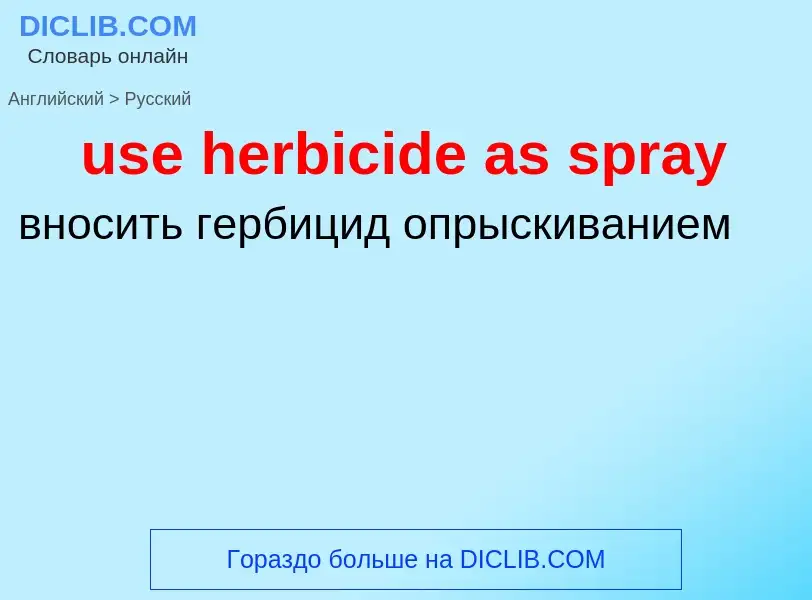Übersetzung und Analyse von Wörtern durch künstliche Intelligenz ChatGPT
Auf dieser Seite erhalten Sie eine detaillierte Analyse eines Wortes oder einer Phrase mithilfe der besten heute verfügbaren Technologie der künstlichen Intelligenz:
- wie das Wort verwendet wird
- Häufigkeit der Nutzung
- es wird häufiger in mündlicher oder schriftlicher Rede verwendet
- Wortübersetzungsoptionen
- Anwendungsbeispiele (mehrere Phrasen mit Übersetzung)
- Etymologie
use herbicide as spray - Übersetzung nach russisch
[hə:bi'saidl]
общая лексика
гербицидный
прилагательное
сельское хозяйство
гербицидный
Definition
Wikipedia
The use–mention distinction is a foundational concept of analytic philosophy, according to which it is necessary to make a distinction between using a word (or phrase) and mentioning it. Many philosophical works have been "vitiated by a failure to distinguish use and mention". The distinction can sometimes be pedantic, especially in simple cases where it is obvious.
The distinction between use and mention can be illustrated with the word cheese:
- Use: Cheese is derived from milk.
- Mention: "Cheese" is derived from (the Anglian variant of) the Old English word ċēse (pronounced [ˈt͡ʃeː.se]).
The first sentence is a statement about the substance called "cheese": it uses the word "cheese" to refer to that substance. The second is a statement about the word "cheese" as a signifier: it mentions the word without using it to refer to anything other than itself. Note the quotation marks.



![Handicapped children in [[Vietnam]], most of them victims of [[Agent Orange]], 2004 Handicapped children in [[Vietnam]], most of them victims of [[Agent Orange]], 2004](https://commons.wikimedia.org/wiki/Special:FilePath/A vietnamese Professor is pictured with a group of handicapped children.jpg?width=200)


